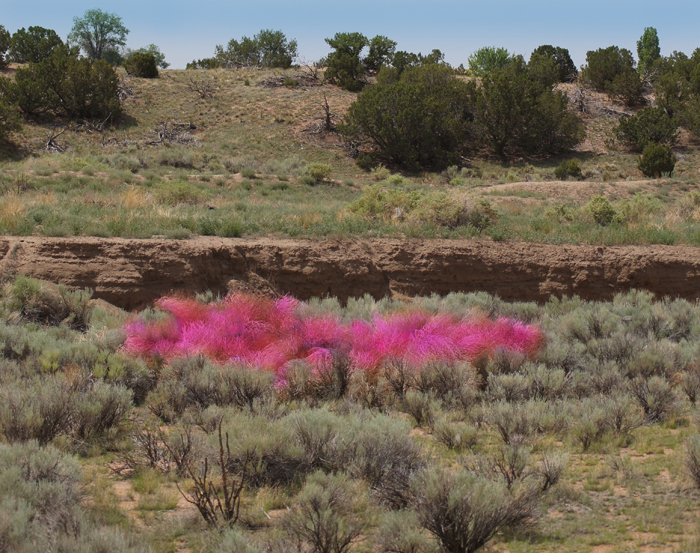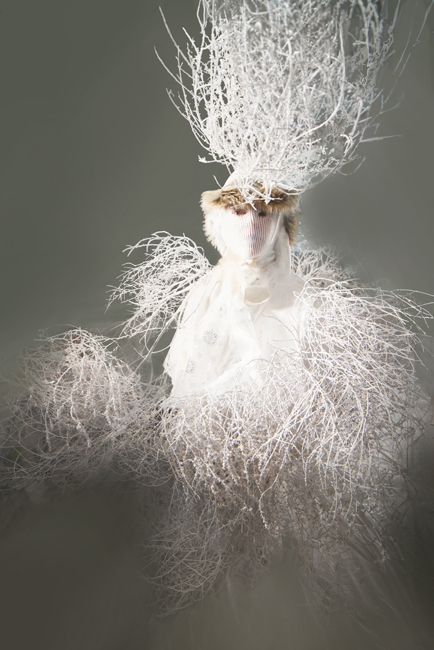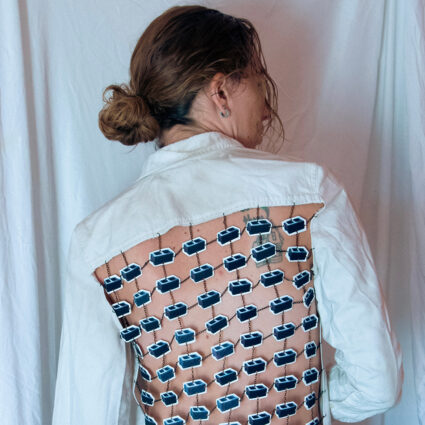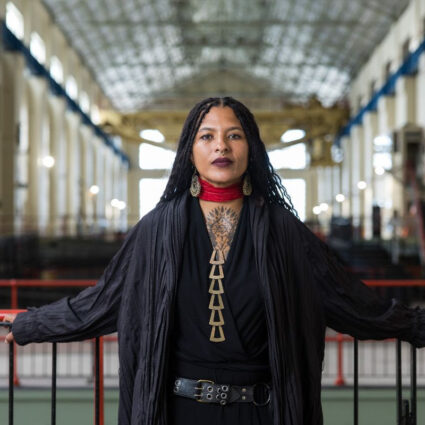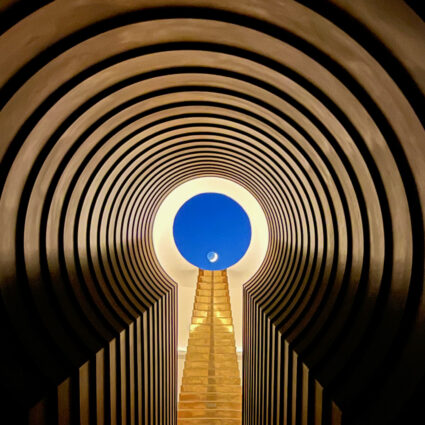Ahní Rocheleau is a Santa Fe-based artist whose interdisciplinary work collapses the distance between humans and nature, exhibiting a deep care for the environment that bridges art and activism.
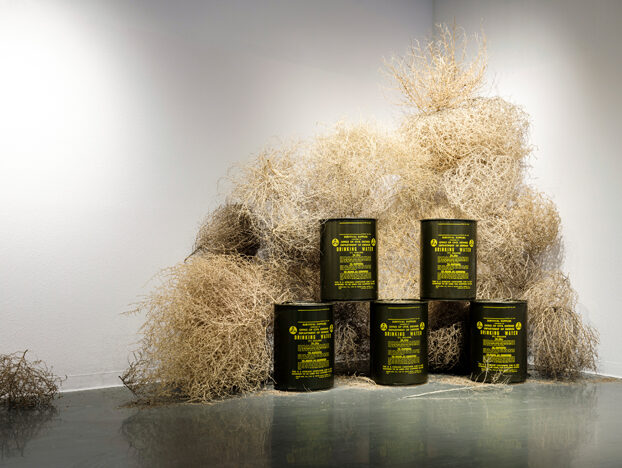
Santa Fe | ahnirocheleau.com | @ahnirocheleau | @become_climate_consciousness
Ahní Rocheleau’s work uses tactile materials to challenge the notion of environment as decidedly separate from human existence. Since 2017, she has used a most interesting and perhaps unconventional medium—the tumbleweed—as a harbinger for ideas of cultural memory, human connectedness to nature, and climate change. She uses the tumbleweed as a conceptual invitation to communal action, a visually striking minimalist gallery object, and as an associative vehicle that conjures both historical and environmental connotations.
In addition to installation and sculpture, Rocheleau engages in painting, performance, and curatorial practices. One-of-Many (2019-present) is a social engagement work that invites participants to gather grass, fallen branches, or tumbleweeds to “make a personally meaningful garment to walk—alone or in groups, in silence or in song—within the collective voyage” of climate consciousness. The title refers to “a being who walks through public spaces, roaming along rivers and streets, spirit-like in a frosty, ghostly-white cloud of bobbling tumbleweeds—that omen of drought from the Dust Bowl era, and now of extreme climate drought,” according to an artist statement.
Although the tumbleweed is a visually striking object, its harshness juxtaposes its frailty, highlighting the tenuous balance we as humans face within an earth we have so badly damaged.
According to Rocheleau, her work, including the Fertile Soil Series, the Tumbleweed Series, and a working lab that exists in an arroyo, “challenges the assumption that wild nature is exterior to our daily existence… [The works] offer an ecologically attuned, psychological sanctuary unlike the interior rooms of our furnished homes.”
Rocheleau teaches public space design and studio arts at the Institute of American Indian Arts and earned her MFA in sculpture from the Rhode Island School of Design. She has been awarded grants, fellowships, and commissions from several national and international institutions. In 2003, she founded Spaces For Peace, a “public space design nonprofit unfurling a world centered on peace and creative nonviolent methodologies,” and organized and curated the Art Against Racism biennial in 1989 and 1991 in Providence, Rhode Island.
